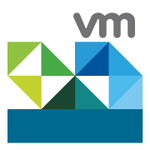Description

Sensu

VMware vSphere
Comprehensive Overview: Sensu vs VMware vSphere
Certainly, I can help break down Sensu and VMware vSphere. These two products serve different primary functions and target markets, which is essential to understanding their positioning in the tech landscape.
Sensu
a) Primary Functions and Target Markets
- Primary Functions: Sensu is an open-source monitoring platform primarily used for monitoring infrastructure, applications, and services. It provides functionality to collect metrics, trigger alerts, and provide notifications based on real-time monitoring data. It allows for dynamic service discovery and supports a variety of data sources and plugins, making it highly adaptable for various use cases.
- Target Markets: Sensu targets DevOps and IT operations teams in small to medium-sized enterprises as well as large organizations that require scalable monitoring solutions. It's particularly appealing to tech-savvy teams that prefer customizable and open-source tools to build tailored monitoring solutions that fit their specific requirements.
b) Market Share and User Base
- Sensu competes in the monitoring and observability space, which includes players like Nagios, Zabbix, and Prometheus. While it does not lead the market in terms of share, Sensu is appreciated for its flexibility and open-source model, attracting developers and organizations looking for seamless integration into CI/CD pipelines and cloud-native environments.
- The user base consists mostly of organizations that value customizable, community-driven projects and those transitioning to cloud-native and container environments where automation and scalability are key.
c) Key Differentiating Factors
- Sensu is known for its lightweight and extensible architecture, allowing users to write custom plugins and handlers.
- It adapts well to modern environments, especially Kubernetes, enabling easier monitoring of cloud-native architectures.
- Its licensing model (being open-source) makes it a cost-effective choice for organizations preferring to avoid licensing fees associated with proprietary software.
VMware vSphere
a) Primary Functions and Target Markets
- Primary Functions: VMware vSphere is a leading virtualization platform used for server virtualization, resource management, and data center consolidation. It enables organizations to efficiently utilize hardware resources by running multiple virtual machines on a single physical server.
- Target Markets: VMware vSphere targets enterprises that operate data centers and require robust virtualization solutions. It is ideal for businesses of various sizes, from small businesses to large enterprises, especially those focused on optimizing hardware utilization, improving agility, and reducing costs in their data centers.
b) Market Share and User Base
- VMware vSphere is a market leader in server virtualization, competing primarily with Microsoft Hyper-V and open-source solutions like KVM. It holds a significant share of the market due to its comprehensive solution set and reliability.
- Its user base includes a wide range of enterprises globally, particularly those that already have significant investments in VMware's ecosystem and value high performance, enterprise-grade features, and strong support.
c) Key Differentiating Factors
- vSphere offers a mature and feature-rich virtualization platform with advanced capabilities such as high availability, fault tolerance, and vMotion for live migration of virtual machines.
- It is tightly integrated with VMware's suite of products, offering seamless management and orchestration capabilities across hybrid and multi-cloud environments.
- vSphere provides robust scalability and performance optimization features that are highly valued in enterprise data center environments.
Comparison Summary
- Functionality and Use Case: Sensu focuses on monitoring and observability with strong ties to DevOps practices, while VMware vSphere is centered around providing a comprehensive virtualization platform.
- Market Position and Target Users: Sensu appeals to organizations looking for flexible and open-source solutions, while vSphere attracts enterprises needing reliable and mature virtualization solutions.
- Differentiators: Sensu's flexibility and open-source nature stand out in the monitoring space versus vSphere’s robust features and integration within VMware’s suite, making it highly desirable for data center virtualization.
Overall, both products serve critical roles in IT infrastructure but cater to distinct needs and markets. While Sensu is celebrated for adaptability in monitoring, vSphere’s strength is in delivering a powerful virtualization platform that supports enterprise-level infrastructure management.
Contact Info

Year founded :
2010
Not Available
Not Available
Netherlands
Not Available

Year founded :
Not Available
Not Available
Not Available
United States
http://www.linkedin.com/company/vmware-vsphere
Feature Similarity Breakdown: Sensu, VMware vSphere
Sensu and VMware vSphere are both tools used in IT environments, but they serve different primary purposes. Sensu is primarily used for monitoring and observability, while VMware vSphere is a suite for virtualization. Despite these differences, there are some core features that overlap due to the nature of IT infrastructure management. Here’s a breakdown:
a) Core Features in Common
-
Monitoring and Alerting:
- Sensu: Primarily designed for monitoring IT infrastructure, it offers extensive alerting capabilities based on set thresholds and conditions.
- VMware vSphere: While not primarily a monitoring tool, vSphere includes monitoring features to track the performance and availability of virtual machines and hosts.
-
Dashboard and Reporting:
- Both offer dashboards to provide visibility into the status and performance of IT assets. Sensu focuses on the health of services and infrastructure, whereas vSphere provides insights into virtualized environments and their performance metrics.
-
API Access:
- Both tools provide APIs to enable integrations with other systems, allowing for automation and customization of workflows.
b) User Interface Comparison
-
Sensu:
- UI is typically simpler and more focused on monitoring metrics, alerts, and event data. The interface is designed to provide quick insights into the health and performance of various services and systems.
- Focuses heavily on clarity and simplicity, making it easier for users primarily interested in monitoring.
-
VMware vSphere:
- Offers a more complex interface given its extensive suite of virtualization tools. The UI is designed to manage and visualize complex IT infrastructure, including virtual machines, storage, and networking.
- It is often more complex due to the detailed control it provides over virtualized environments, which can make it more challenging for users not familiar with virtualization concepts.
c) Unique Features
-
Sensu Unique Features:
- Nagios Plugin Compatibility: Sensu supports Nagios plugins, which helps in migrating existing monitoring setups to Sensu without significant rework.
- Event Processing and Handlers: Sensu allows detailed manipulation and processing of event data through custom handlers, enabling actions such as alerting or automated remediation steps based on the context.
-
VMware vSphere Unique Features:
- Virtualization Management: Complete suite for managing virtualized servers, including features for resource allocation, live migration of virtual machines (vMotion), and snapshot management.
- Fault Tolerance and High Availability: Advanced features for ensuring uptime and resilience in virtualized environments, including load balancing and failover capabilities.
- Distributed Resource Scheduler (DRS): Automatically balances computing workloads with available resources in a virtualized environment.
- Enhanced Security Features: Includes VM Encryption, Secure Boot, and other enterprise-grade security enhancements specifically designed for protecting virtual environments.
In summary, while both Sensu and VMware vSphere share common ground in monitoring and some management capabilities, they are quite distinct in their primary functions and unique offerings. Sensu excels in flexible monitoring and alerting, whereas VMware vSphere provides a comprehensive suite for virtualization with robust management and security features.
Features

Not Available

Not Available
Best Fit Use Cases: Sensu, VMware vSphere
Sensu
a) Best Fit Use Cases for Sensu
Types of Businesses or Projects:
-
Small to Mid-Sized Enterprises (SMEs): Sensu is well-suited for SMEs that require a flexible, scalable, and open-source solution for monitoring and observability. Its ability to handle dynamic infrastructure, including both on-premises and cloud environments, makes it ideal for these businesses.
-
DevOps-Driven Organizations: Companies with a strong DevOps culture benefit from Sensu’s integration capabilities with CI/CD pipelines, container orchestration systems like Kubernetes, and popular configuration management tools.
-
Organizations with Hybrid Cloud Environments: Sensu's ability to integrate with multiple cloud providers and on-premises systems allows businesses with hybrid environments to maintain consistent monitoring across all platforms.
-
Businesses with Complex Infrastructures: Industries that involve various resources, such as microservices architectures and containerized applications, can use Sensu to effectively monitor service health, dependencies, and performance metrics.
-
Open Source Enthusiasts: Companies that prefer open-source tools for their cost-effectiveness and community support find Sensu appealing due to its extensibility and active community contributions.
VMware vSphere
b) Preferred Use Cases for VMware vSphere
Scenarios for Deployment:
-
Large Enterprises: VMware vSphere is ideal for large organizations that require enterprise-grade virtualization to consolidate servers, optimize workloads, and ensure high availability and disaster recovery.
-
Data Centers: Companies operating data centers benefit from vSphere’s robust virtualization capabilities, providing efficient resource management, network configuration, and scalable storage solutions.
-
Private Cloud Implementations: Organizations aiming to build private clouds use vSphere for its advanced capabilities in managing virtual machines, automating operations, and ensuring security and compliance.
-
High Performance Computing (HPC): vSphere is suited for industries requiring extensive computational resources, as it offers the ability to efficiently manage and allocate resources across numerous virtual machines.
-
Organizations Prioritizing Security and Compliance: vSphere offers strong security features, including encryption, VM isolation, and detailed monitoring, ensuring compliance with industry standards and regulations.
Catering to Different Industry Verticals or Company Sizes
Sensu:
-
Tech and Startups: Offers flexibility for rapid scaling and agile development processes. Industries like IT services, SaaS, and web development leverage Sensu for continuous performance monitoring.
-
Finance and Healthcare: Allows for the monitoring of complex, multi-cloud environments while ensuring quick adaptability to changing regulatory requirements.
VMware vSphere:
-
Financial Services: Provides robust security and uptime, critical for financial transactions and data protection, ensuring business continuity.
-
Healthcare: Facilitates safe storage and access to sensitive patient data, complying with stringent healthcare regulations and data privacy laws.
-
Education and Government: Efficiently manages virtual learning environments and administrative IT resources with centralized control and scalability.
Both products are designed to cater to a wide range of industries and company sizes by addressing specific needs—Sensu through its adaptable monitoring platform and vSphere through its enterprise-grade virtualization solutions.
Pricing

Pricing Not Available

Pricing Not Available
Metrics History
Metrics History
Comparing teamSize across companies
Conclusion & Final Verdict: Sensu vs VMware vSphere
To arrive at a well-rounded conclusion and final verdict for Sensu and VMware vSphere, it's important to consider each product's features, functionality, and best use cases.
Conclusion and Final Verdict:
a) Best Overall Value:
When determining the best overall value between Sensu and VMware vSphere, it depends fundamentally on the user's specific needs and use cases. Sensu and VMware vSphere serve different primary purposes. Sensu is a monitoring solution, adept at tracking the health and performance of various infrastructure components, while VMware vSphere is a comprehensive virtualization platform that includes a suite of tools for creating and managing virtualized environments.
-
Sensu might be perceived as offering the best value if the primary concern is effective, scalable, and extensive monitoring across diverse infrastructure environments. It's particularly beneficial for organizations focusing on maintaining system uptime and performance.
-
VMware vSphere offers the best value for organizations prioritizing comprehensive virtualization solutions, enabling them to run and manage a large number of virtual machines efficiently. It's an excellent choice for businesses focused on virtualization, cloud deployment, and efficient resource allocation.
b) Pros and Cons:
Sensu:
Pros:
- Scalability: Sensu can handle a wide range of monitoring needs, from simple server checks to complex infrastructure monitoring.
- Flexibility: The platform supports integration with various tools and technologies, enhancing its adaptability.
- Ease of Use: Offers an intuitive interface for setting up and managing alerts and checks.
Cons:
- Initial Setup Complexity: Can have a steep learning curve when setting up, especially for those without prior experience in monitoring systems.
- Limited Use Case: Primarily focuses on monitoring and alerting, not suited for virtualization needs.
VMware vSphere:
Pros:
- Comprehensive Virtualization: Offers a robust platform for virtualization, cloud computing, and workload management.
- Resource Management: Efficiently balances resources, providing high availability and load balancing.
- Ecosystem Support: Strong community and support network, making it easier to resolve issues quickly.
Cons:
- Cost: Can be costly for small to medium-sized enterprises, especially when considering licensing fees.
- Complexity: May require specialized knowledge to manage effectively, particularly in more complex deployments.
c) Recommendations:
When deciding between Sensu and VMware vSphere, users should consider the following recommendations:
-
Evaluate Primary Needs: If your organization requires robust infrastructure monitoring, Sensu is more aligned with those needs. Conversely, if your focus is on virtualization and managing a virtualized environment, VMware vSphere would be more suitable.
-
Resource Constraints: Consider your budget and available resources. Sensu provides a cost-effective entry point into monitoring, while VMware vSphere is a greater investment but offers a more powerful suite of virtualization tools.
-
Long-term Goals: Align your decision with your organization's long-term IT strategy. For growing cloud-based services or expanding virtualization capabilities, VMware vSphere might provide better alignment. For performance assurance and proactive system health management, Sensu is likely the better choice.
Ultimately, the decision between Sensu and VMware vSphere should be guided by the organization's specific requirements, expertise, and strategic IT objectives.
Add to compare
Add similar companies




